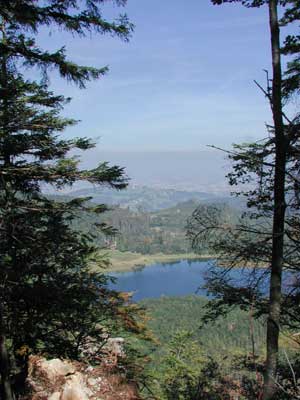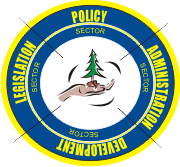The International Institute for Sustainable Development (IISD) and ASB Partnership for the Tropical Forest Margins at the World Agroforestry Centre (ASB–ICRAF) have partnered to deliver a third and final phase of the Building REDD+ Policy Capacity for Developing Country Negotiators and Land...
REDD+ resources
Reducing Emissions from Deforestation and Degradation plus Sustainable Forest Management
(REDD + SFM)
Sustainable Forest Management (SFM) is seen to be a key factor to REDD+►►
Definition of SFM by UN + FAO: A/RES/62/98►► Definition of SFM by UNFF: Sustainable forest management as a dynamic and evolving concept aims to maintain and enhance the economic, social and environmental value of all types of forests, for the benefit of present and future generations►► Definition of SFM by CIFOR: Managing (permanent) forest to achieve one or more clearly specified objectives of management with regard to the production of a continuous flow of desired forest products and services (e.g. carbon) without undue reduction of its inherent values and future productivity and without undue undesirable effects on the physical and social environment►► |
 |
SFM, according to internationally agreed language, is a dynamic and evolving concept that aims to maintain and enhance the economic, social and environmental value of all types of forests, for the benefit of future generations.
Want to read more about Sustainable Forest Management? Follow this link►
REDD+ Governance
 At national, regional and local level as well as for state owned and private owned land and forests
At national, regional and local level as well as for state owned and private owned land and forests
REDD+ SES consists of principles, criteria and indicators that define high social and environmental performance of government-led REDD+ programs. They provide a framework for country-led multi-stakeholder assessment of REDD+ program design, implementation and outcomes.
The representatives of 43 European countries – the 27 EU member states plus the European Commission, Russia and other non-EU European countries – have begun negotiating a legally binding agreement on sustainable forest management in Europe. The Intergovernmental Negotiating Committee (INC) is...
This publication is the report of the workshop titled “Decentralised Forest Governance: Beyond JFM” held on 14-15th October, 2011 in Bhubaneswar, India. The objectives of the workshop were:
Seiten
REDD+ Capacity building
 At all stages from indigenous people, local communities to individual forest owners
At all stages from indigenous people, local communities to individual forest owners
The report on the Norway-Guyana MoU is an unusual event in the normally secretive apparatus of government in Guyana.
Notwithstanding issues affecting the efficiency and effectiveness of forest and forest land allocation policies, Vietnam is at a cross-road at the time market-based mechanisms for forest conservation, such as REDD, are attracting an increasing and vibrant interest in international Climate Change...
This training manual has been written for indigenous trainers who intend to facilitate a training on REDD for indigenous leaders. It has been devised for a proposed five-days training programme with five modules. The manual includes suggestions for the objectives of each module, activities and...
Permanent Forum on Indigenous Issues; Ninth Session; 12th & 13th Meetings (AM & PM): The “painful” history of State control over forests could be traced by following the heavily deforested footprints that colonizers had left on indigenous lands and territories, the Permanent Forum on...
Seiten
REDD+ Technical Support
 From national carbon inventory to national land use planning...
From national carbon inventory to national land use planning...
